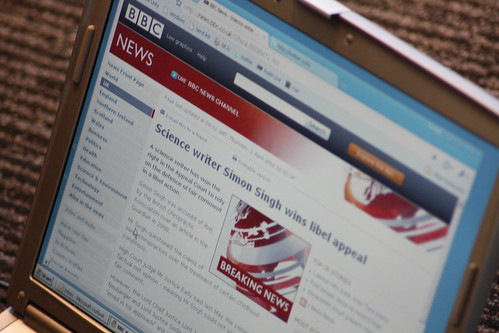 |
| Moral compass by psd |
Here's a few links for the sessions on The Ethical Journalist that I'll be running for students at Solent University, Southampton.
It's designed to be a practical application of ethics to accompany some more theoretical lectures.
Once we've defined ethical journalism we'll take a look at:
The Ethical issues behind a recent story:
- BBC coverage of Colonel Gaddafi's capture
- Guardian story on the BBC's use of 'shocking' images
- A round-up of media coverage of Colonle Gaddafi's capture and death
Existing guidelines and codes of practice:
- The Press Complaints Commission Editors' Code of Practice
- The National Union of Journalist's Code of Conduct
- The Ofcom Broadcasting Code
How open and transparent should journalists be about their own interests?
- George Monbiot publishes details of his sources of income
- Jeff Jarvis on 'Transparency is the new objectivity'
Ethical questions behind a series of notable stories:
- Coverage of the July 2005 London bombings
- How the Telegraph paid for information on MPs expenses
- Panorama undercover investigation into abuse at a Bristol care home
- News of the World 'sting' on snooker champion John Higgins
- Telegraph's secret recording of Business Secretary Vince Cable: "I could bring down the government"
- The Law Lords ordering a Mirror journalist to reveal his source in a story involving the medical records of Moors Murderer Ian Brady, his refusal and the outcome of a subsequent appeal
The current debate on media regulation:
-Leveson Inquiry
- Former PCC chair on the Commission's future


